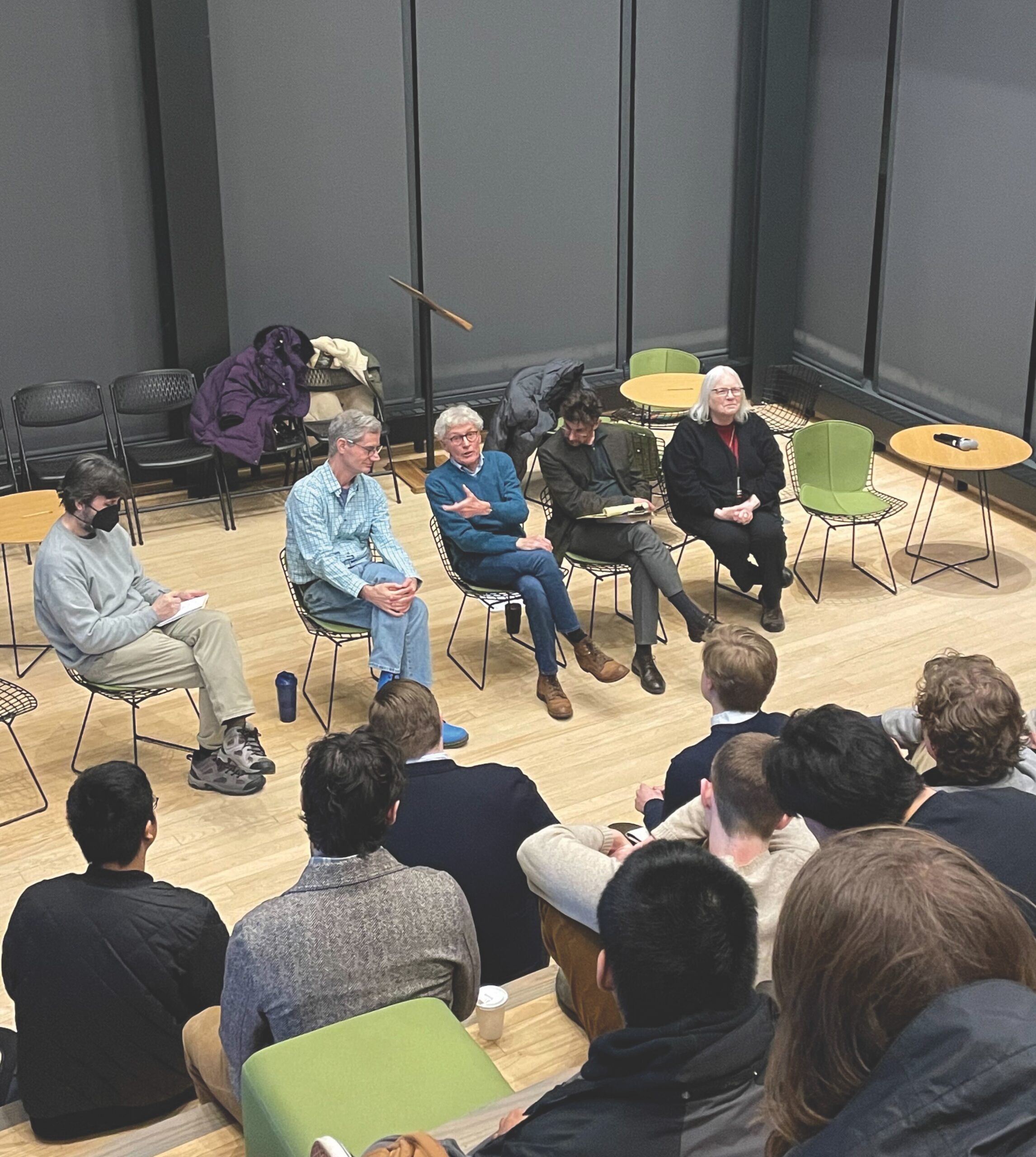Peucinian Society hosts human nature forum
March 1, 2024
 Nikki Harris
Nikki HarrisOn Tuesday evening, the Peucinian Society hosted a 90-minute forum in Roux Lantern that aimed to explore what human nature is and contemplate its existence.
The forum featured a panel of faculty from a variety of departments, including Assistant Professor of Digital and Computational Studies Fernando Nascimento, Professor of Latin and Greek Barbara Boyd, Professor of English David Collings and Associate Professor of Economics Stephen Meardon. Professor of Government Paul Franco moderated the forum.
Collings held that human nature does not exist, citing the differences between each culture on earth as evidence.
“If we look across world cultures, what things do they have in common? Do they organize their economic lives in similar ways? No. Do they organize their sexual lives in similar ways? No. Do they organize their political lives in similar ways? No,” Collings said.
Collings said that most cultures do share certain foundational elements, such as languages and post-death rituals. However, he argued that these commonalities are not evidence of an inherent human nature, but rather the construction of human culture.
“What could be shared by all cultures is that when somebody dies, people don’t just leave the corpse lying on the ground; somebody does something,” Collings said. “What the human beings share is culture…. What we share, then, is not nature but culture.”
Other panelists disagreed, arguing that human nature does exist. Meardon referred to the work of economist and philosopher Adam Smith—who wrote on traits that all humans share, such as self-deceit—as evidence for the existence of human nature.
“I think of what Smith writes about self-deceit, which is about human nature,” Meardon said. “We devise technologies and institutions and norms for purposes of self-deceit.”
Nascimento said the ability to create narrative or meaning is another trait he thinks humans share as part of human nature.
“[Narrative] invites us to be reflective. We look at ourselves as … capable beings striving for meaning. And when we do that, we try to answer the question: Who am I?” Nascimento said.
Boyd, who Peucinian invited to the panel that morning after Professor of Government Jean Yarbrough canceled, did not take a definitive stance on human nature. Instead, she spoke about how the nature of a person’s character in ancient Greece was seen as fixed, drawing on her experience as a classicist. She recited the arc of the characters in “The Iliad” as evidence of this philosophy of human nature.
“Human nature, from the ancient Greek point of view, [is] something that you’re kind of born with, and it’s kind of fixed, and that if you have a noble nature, you have a noble nature and that noble nature will be yours, whatever happens,” Boyd said.
Collings spoke further on how people historically and today often use the idea of human nature to defend their beliefs.
Alexander Tully ’24, who introduced the panelists, said in an interview with the Orient that the Peucinian Society hosted a similar forum also on human nature shortly before the Covid-19 pandemic and that the society hopes to host more public forums in the future.
“I think the great benefit of [the panel] was to bring together a pretty academically diverse group of people with lots of different views, come together as a campus community and think through these really complex but also so fundamental questions about our life—how we should live, how we are living,” Tully said.

Comments
Before submitting a comment, please review our comment policy. Some key points from the policy: